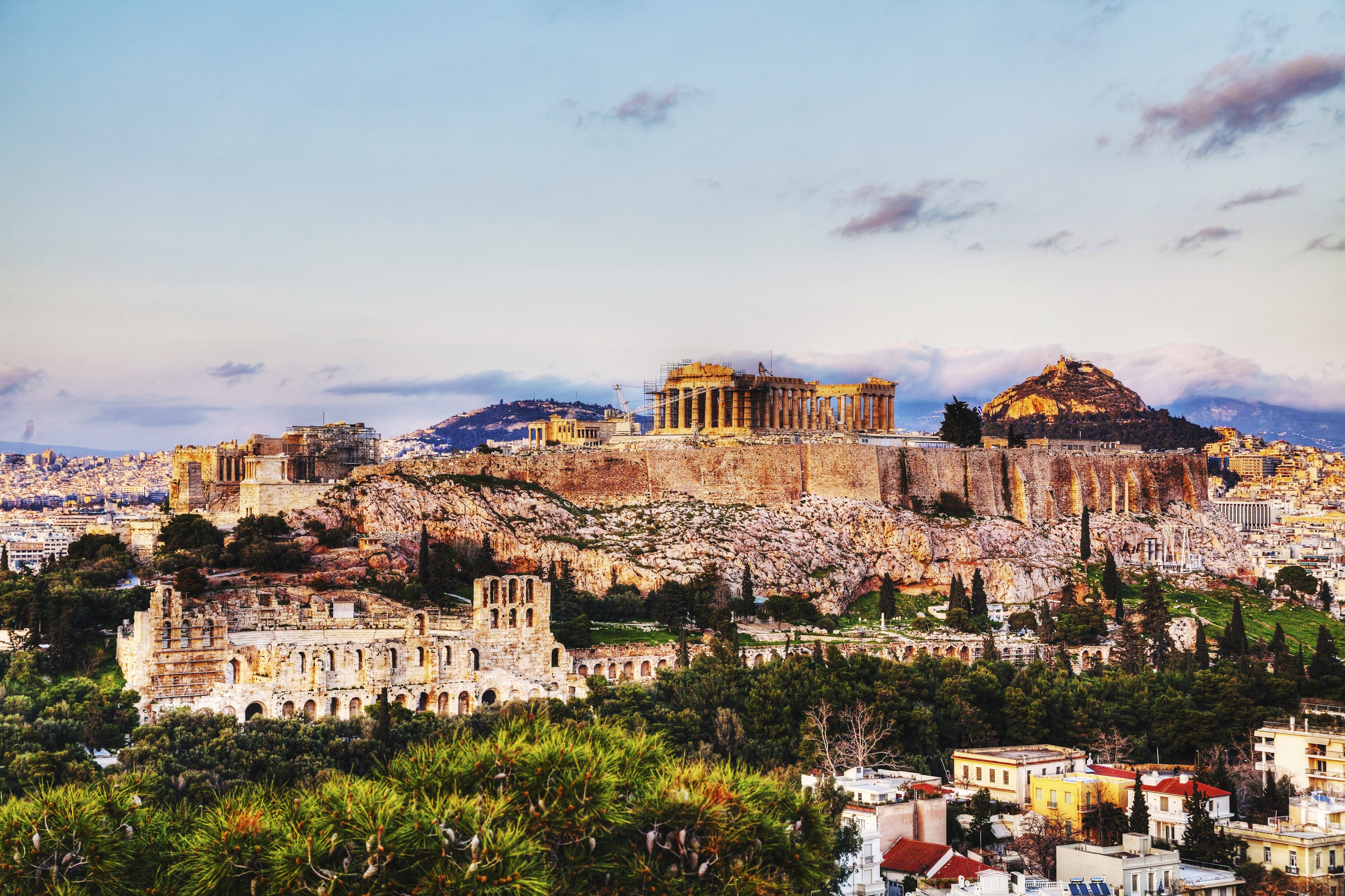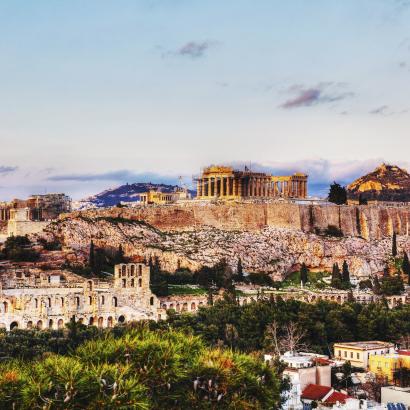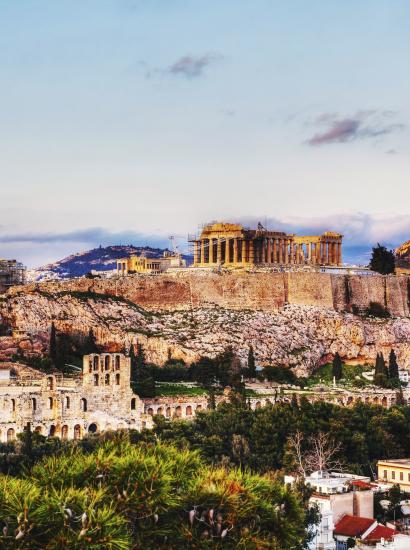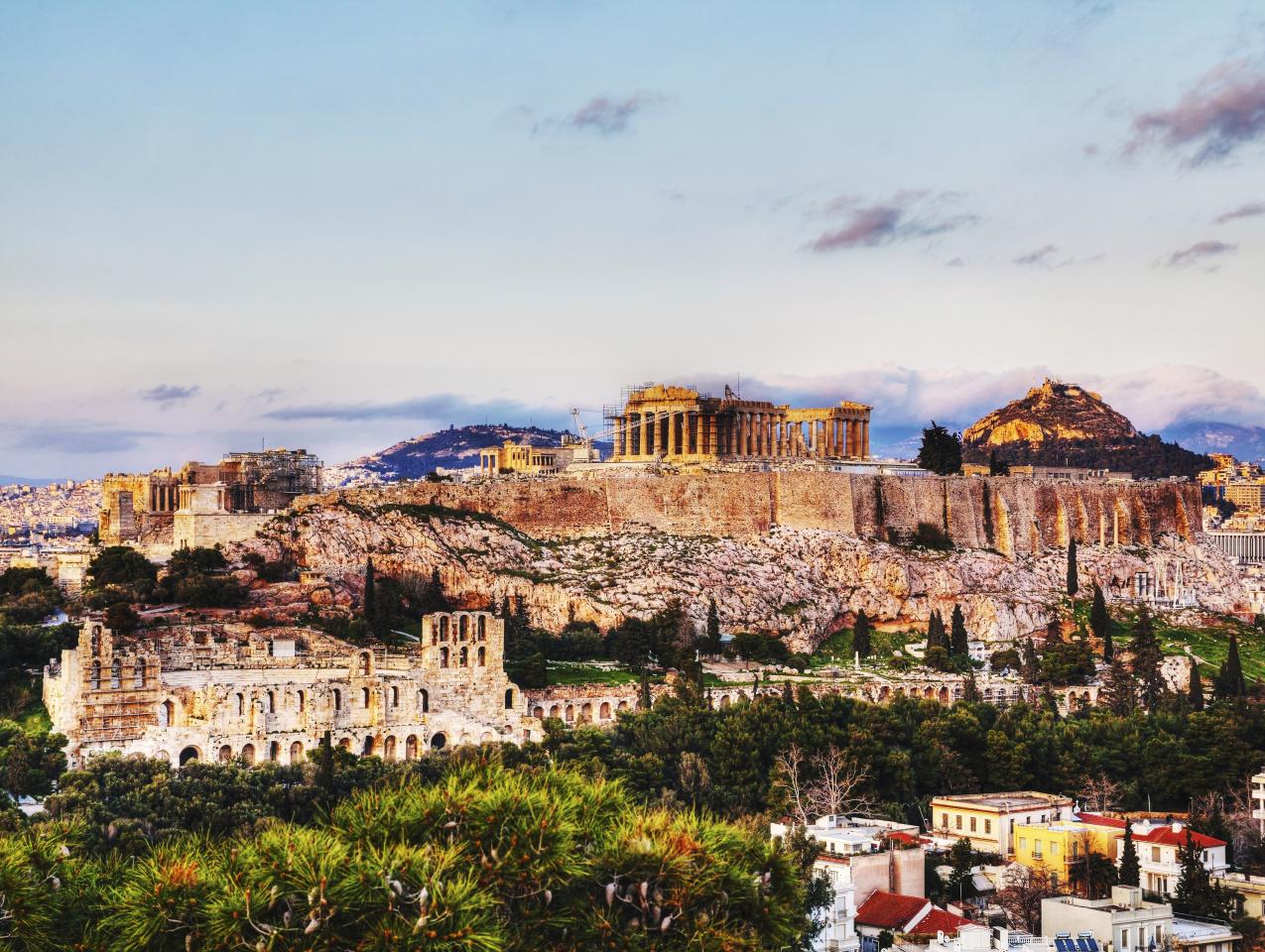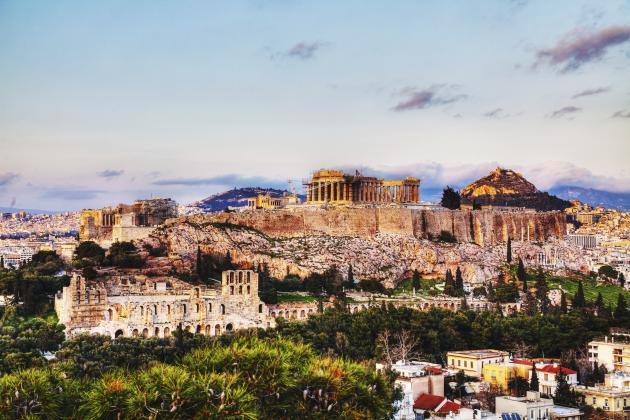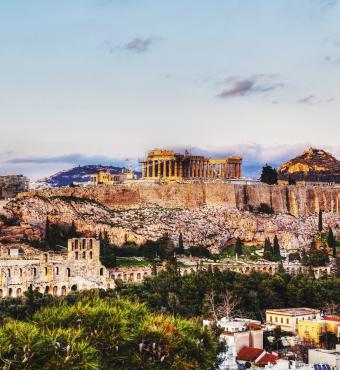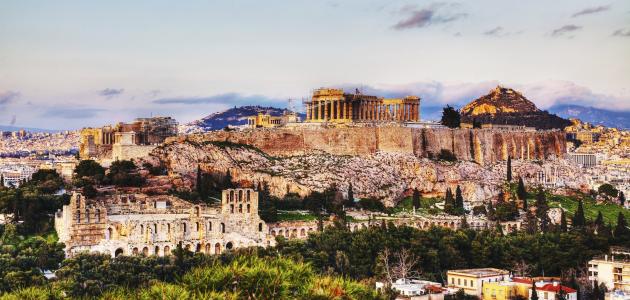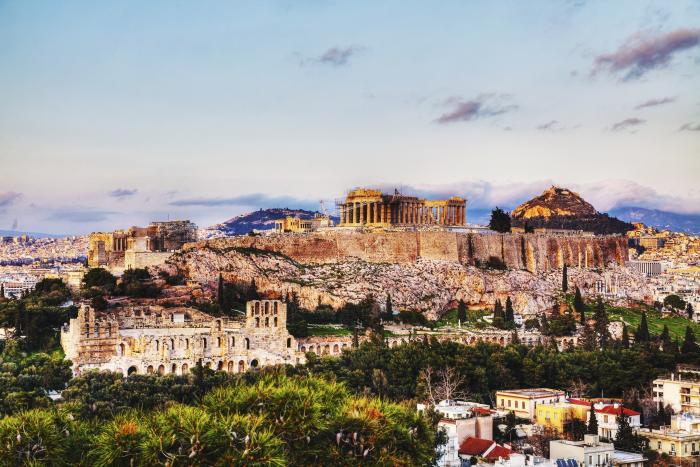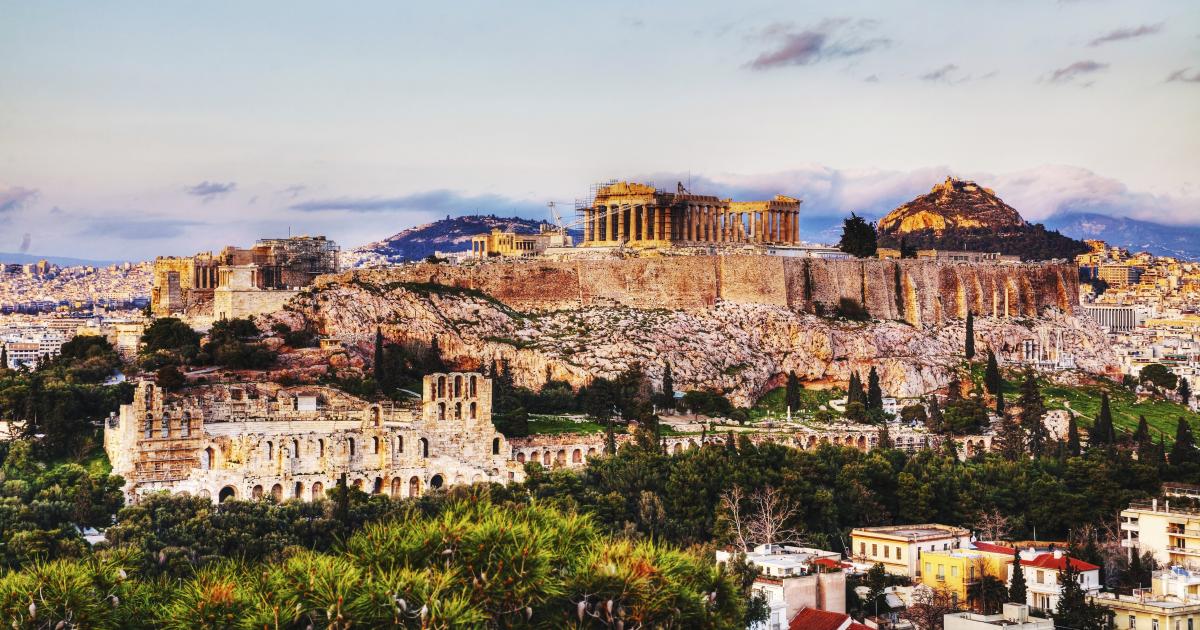- History
- Trade
- Revitalizing History
Hoover senior fellow Josiah Ober has studied the period of ancient Greek “efflorescence,” the years (800–300 BCE) when Greek city-states experienced impressive economic growth. He spoke with Chris Herhalt about what those centuries say about today’s economic challenges.
Chris Herhalt: Could the conditions you highlight in the period of Greek “efflorescence” be used to support global free trade today? You discuss the ease of exchange of goods and the high mobility, not just of goods, but of people moving between the city-states.
Josiah Ober: What we see in the Greek world is a lot of specialization in particular products. For example, Sicily is a very good grain-growing area and does a lot of exporting. They’re growing much more grain than can be consumed locally, and exporting it to places like Athens that have no possibility of feeding their own population. Athens, then, has to develop specialization in things they can trade for the grain. The Greek world would not have been as densely populated, and would certainly not have had this relatively high level of individual consumption, if each one of these states was trying to subsist on its own.
This gives you the idea that this was basically a free-trading zone—and quite an extensive one, not just in the Greek world. It’s all the way up to the Black Sea, over to Syria, down to Egypt, across to southern France, all up into Italy, even into northern Italy.
It shows how you can create efflorescence if you can get free trade going.
Now, under what conditions will people be willing to trade freely? Only when they think they’re not going to be cheated when they go to the next place over. So, you have to develop interstate norms for how traders bringing products to exchange will be treated. Are you going to tax them such that there’s no profit to be had? Also, you have to develop an efficient form of exchange. The Greek world is one of just two places that develop the idea of coinage; China is the other one. The Greeks borrow the idea from the Lydians, but they’re the ones who cleverly develop it into precious-metal coinage of different denominations, from very small ones to big ones. The Chinese figure out something else—instead of having these huge strings of copper, which is somewhat inefficient, ultimately they get paper money.
So, you get standardized exchange in precious metal. But the problem with one precious metal, silver, is that it’s very hard to figure out its purity. You can figure out its weight, but you can’t figure out its purity easily. Gold is easy, silver is hard. That’s why it’s really efficient to have states issuing standard coinage impressed with the image of the state. You can trust that state’s coinage. Free trade thus requires both a willingness to trade and a background set of norms or laws so traders won’t get cheated. And it requires some means in which you can efficiently trade through a standard exchange medium. You don’t have to be trading bulk grain for bulk shoes, or something like that.
Chris Herhalt: Here’s one of your examples of growth during this period. You say that between 800 and 300 BCE, the average floor plan of a Greek home grew 350 percent. That seems like a great indicator of how things were getting better for average people.
Josiah Ober: Yes, absolutely. My colleague Ian Morris in Stanford’s Classics Department is the one who did that measurement and gathered the data based on archaeological evidence of floor plans. The nice thing is we can show that the average size of the houses is growing not because you’re getting a few spectacular mansions and everybody else is living in hovels. We show that even the smaller houses, relatively speaking, are getting much bigger. That growth is lifting an awful lot of boats. In fact, what we really can’t find in the Greek world by the time we’re in the full classical period [480–323 BC] is tiny, miserable hovels or slum areas in which people seem to be very closely packed together, which you can find in the Roman world.
Chris Herhalt: There’s debate now about whether or not the future means continued urbanization. You write that ancient Greece was more urban than anywhere other than Holland in the 1600s or England and Wales at the turn of the nineteenth century. That seems to say urbanization might be a positive thing.
Josiah Ober: Yes, in fact it does seem to be. People who have studied urbanization show that there are all kinds of positive effects. You certainly get more internal specialization, and you get more innovation as people deal with one another. Arguably, you get political development because people have to figure out how to deal with all the urban problems. How do we keep the streets clean? How do we get the sewage out, so we don’t all die of dysentery as the towns get bigger?
Chris Herhalt: You say Greek efflorescence was not determined by geography or access to certain abundant natural resources or even fresh water. Rather, it was about strong institutions, political freedom, and markets. Are we losing that understanding today?
Josiah Ober: The great thing about the Greek case is that we’ve got a good deal of information about at least rough demographics and consumption rates in the Bronze Age, that is, before the period of the city-states. And then we have a lot of information about what happens in the medieval through early modern periods in the same sort of core Greek area.
Think of the area that is now the modern Greek state. We have consistent archaeological evidence. You can show that exactly the same geography and very similar climactic conditions—they haven’t changed dramatically—over time yield very different economic outcomes. And it can’t just be something about the geography, the location within the Mediterranean, the mountainous terrain, or good clean water. So, what is it? And then you begin to look at how the institutions, both within states and then between states, are very different in these periods. I think that gives you a very strong reason to believe that it is in fact the institutions that are driving it.
Chris Herhalt: During this five-hundred-year period, certain poleis are fighting each other occasionally.
Josiah Ober: Not occasionally—a lot. It’s not that you end up in a world of complete peacefulness. There is indeed ongoing warfare city to city, and sometimes whole coalitions of cities against each other, so there’s a lot of competition of that sort.
But the interesting thing is that even though there’s all of this city-to-city conflict, there are ongoing, booming trade networks. Even in times of large-scale warfare, trade continues, although surely it’s disrupted, and sometimes there are military strategies that try to put pressure on imports.
Compare that with the Roman Empire, when we see another efflorescence period. You can sort of explain that as the Roman armies keeping the peace. But in this Greek period there is fierce competition on all kinds of levels. And once again, that’s driving innovation.
Chris Herhalt: You mention that historian M. I. Finley and others said that this period of growth in Greece couldn’t have been due to market principles because market capitalism is “unique to modernity.”
Josiah Ober: That’s right. Finley, who was a great historian in many ways and hugely influential, was sort of a theory-first kind of historian. He essentially convinced himself that there could not be growth over time in the Greek world, especially because of slavery. He thought slavery would depress growth because people wouldn’t choose to engage in innovative competitive practices to help slaves. He just convinced himself that since there couldn’t have been growth, there was no growth. And therefore, since there was no growth, there was no evidence for markets doing anything.
Once we can show that there was growth, then you have something to explain. There’s been so much archaeological work that Finley simply couldn’t have known about because it’s been done more recently, and that has made it impossible to believe that there wasn’t very large-scale trade, specialization, and industrialization aimed at export.
Chris Herhalt: Tariffs are on a lot of people’s minds right now. You also mention that average harbor duties (tariffs) in this period were 2 percent.
Josiah Ober: Yes.
Chris Herhalt: That’s telling us something, isn’t it?
Josiah Ober: It is, and I think, once again, this is competition.
I assume that every state would just as soon set its harbor duties as high as it can to extract as much revenue as it can. But on the other hand, if you have multiple harbors that you as a trader can choose to go into, you are not going to choose the one that says, “I take 10 percent of your profits every time you come in and out.”
And so, it looks as if the price the state can charge has been set by what the market will bear. Now, you can’t prove that, but there does seem to be a sort of standardization at this 2 percent rate. And that’s a pretty inexpensive way to do business, especially if once you sail in, you’re not going to be cheated. You know that the legal system is designed to enable traders who are trading in a fair way, no one is being deceptive about their goods, and you will not get taken advantage of by the locals.
This interview was edited for length and clarity.







